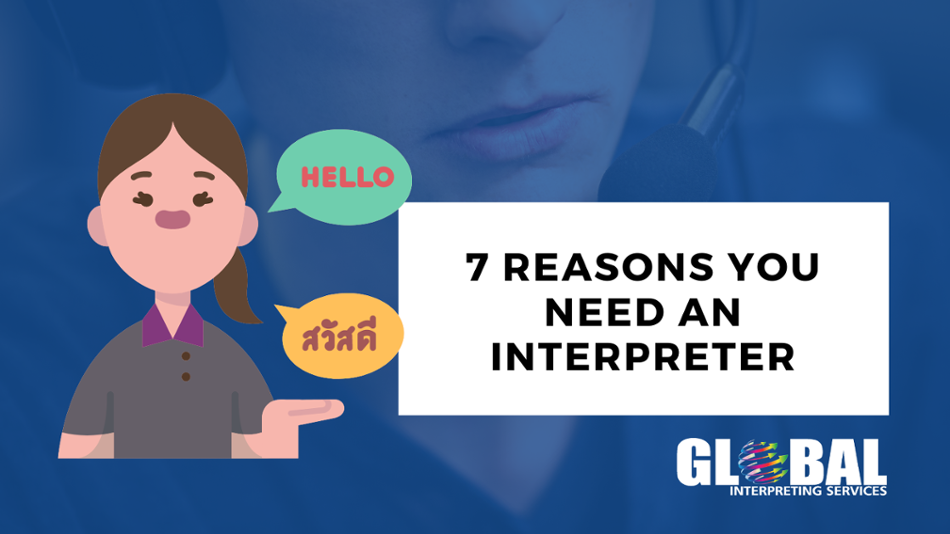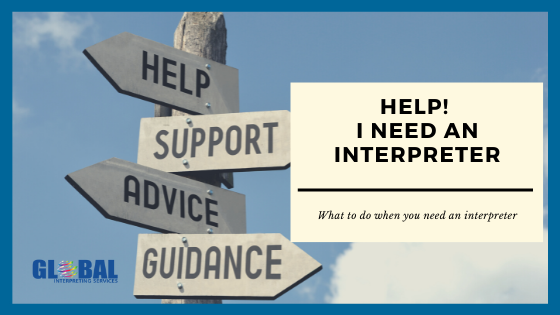What is an Interpreter?
An interpreter is a professional who helps individuals communicate across language barriers, converting spoken language from one language to another in real-time. There are many situations where an interpreter may be necessary, such as medical appointments, legal proceedings, or business meetings. Interpreters can help ensure that all parties involved understand each other and can effectively communicate their needs and desires.
There are many situations where having an interpreter can be incredibly beneficial. Here are seven reasons why you might need an interpreter:
1. Language barriers
If you are communicating with someone who speaks a different language, an interpreter can help you to understand each other. This is especially important in situations where miscommunication could have serious consequences, such as in legal or medical contexts. When dealing with individuals who speak different languages, it is essential to have an interpreter present to aid in comprehending one another.
The benefits of having an interpreter are manifold.
Firstly, it allows for effective communication between parties, ensuring that both parties can fully understand the message being conveyed.
Secondly, it promotes inclusivity, as it allows individuals who speak different languages to participate in situations where they would otherwise be excluded.
Lastly, in fields such as legal or medical contexts, having an interpreter can prevent serious consequences that may result from miscommunication. Thus, it is imperative to have an interpreter present in any situation where language barriers may be present.
2. Cultural differences
Even if you speak the same language as someone else, there may still be cultural differences that make it difficult to communicate effectively. An interpreter can help to bridge these gaps and ensure that everyone is on the same page.
Cultural differences can pose a significant challenge to effective communication, even when two individuals speak the same language. These differences can manifest in a variety of ways, including differences in communication styles, beliefs, values, and customs. For instance, in some cultures, direct eye contact is considered a sign of honesty and respect, while in others it may be seen as confrontational or disrespectful. Similarly, certain gestures or facial expressions may have different meanings in different cultures.
Using an interpreter can be a useful strategy to overcome these challenges and ensure that everyone is on the same page. An interpreter can help to bridge the gaps created by cultural differences by providing a nuanced understanding of the subtleties of language and culture. They can help to clarify misunderstandings, interpret idiomatic expressions, and ensure that the intended message is accurately conveyed.
Additionally, an interpreter can help to establish a rapport between individuals from different cultures and build trust, which can be essential for effective communication.
3. Business meetings
If you are conducting business with someone who speaks a different language, an interpreter can help to facilitate communication and ensure that negotiations go smoothly.
Business meetings can be challenging, especially when you are communicating with someone who speaks a different language. In such cases, an interpreter can be extremely helpful in facilitating communication and ensuring that negotiations proceed smoothly.
In addition to interpreting what is said, an interpreter can also help to bridge any cultural divide that may exist between the parties involved. For example, they can provide insight into customs and practices that may be unfamiliar to one or both parties and help to ensure that each party understands the other's perspective.
Furthermore, interpreters can also provide valuable assistance in preparing for a meeting, such as by reviewing documents and preparing summaries of key points. Overall, working with an interpreter can help to ensure that your business meetings are productive and successful, even when dealing with language barriers.
4. Medical appointments
In medical contexts, it is essential that patients understand their diagnosis, treatment options, and any medication instructions. An interpreter can help to ensure that this information is communicated clearly and accurately.
Medical appointments are crucial for patients to stay informed about their health. Patients need to know their diagnosis, the various treatment options available to them, and the appropriate medication to take. It is crucial that the information is communicated clearly and accurately. This is where an interpreter comes in. An interpreter can facilitate communication between patients and healthcare professionals, ensuring that information is conveyed correctly.
Furthermore, interpreters can provide additional support to patients by answering any questions they may have, or by providing emotional support during difficult discussions.
By having an interpreter present, patients can feel more empowered and more in control of their healthcare decisions. Overall, interpreters play a vital role in ensuring that patients receive the best possible care, both in terms of their physical health and their emotional well-being.
5. Legal proceedings
Legal language can be complex and difficult to understand, even for native speakers. An interpreter can help to ensure that all parties understand what is happening during legal proceedings.
Legal proceedings can be complicated and convoluted, filled with legal jargon that can be difficult to comprehend, even for those whose first language is English. This can lead to misunderstandings and misinterpretations, which can have serious consequences for all parties involved.
This is where the need for an interpreter arises. An interpreter can help to bridge the language gap and ensure that all parties fully understand what is happening during the legal proceedings. They can help to clarify legal language and terminology, provide cultural context, and ensure that everyone involved is on the same page. With their assistance, legal proceedings can proceed more smoothly and efficiently, with fewer delays and misunderstandings.
Additionally, an interpreter can help to ensure that the rights of non-native speakers are protected and that they have equal access to justice.
The importance of interpreters in legal proceedings cannot be overstated, as they play a vital role in ensuring that justice is served and that all parties are treated fairly.
6. Education
If you are studying in a foreign country or attending classes where the language of instruction is not your native language, an interpreter can help to ensure that you understand the material.
Education is an important aspect of life that contributes to personal and professional growth. It is especially challenging to study in a foreign country or attend classes where the language of instruction is not your native language.
However, an interpreter can help to bridge the gap and ensure that you understand the material. Furthermore, working with an interpreter can provide valuable opportunities for cultural exchange and language learning. It allows you to gain a deeper understanding of the subject matter and the different perspectives that exist around the world. So, if you are facing language barriers in your education, don't hesitate to seek the assistance of an interpreter. They can help you to achieve your academic goals and expand your horizons in ways you may not have thought possible.
7. Travel
When traveling to a foreign country, an interpreter can help you to navigate cultural differences and communicate effectively with locals.
When traveling to a foreign country, it is important to be aware of cultural differences and customs in order to avoid misunderstandings. One way to navigate these differences is to hire an interpreter. An interpreter can assist with communication, not only by translating language but also by interpreting cultural nuances and nonverbal cues. In addition to serving as a communication bridge, an interpreter can also provide valuable insight into local customs, traditions, and etiquette. With their help, travelers can gain a deeper understanding of the country they are visiting and form more meaningful connections with locals.
In Summary
Overall, there are many situations where having an interpreter can be incredibly useful. If you find yourself in any of these situations, consider hiring an interpreter to help you communicate effectively and avoid any misunderstandings.
Now that you understand what interpreters are, but do you know the difference between Interpreters and Translators?
Ready to commit to better communication with interpreters?
Check out what interpreting services we offer Here.



